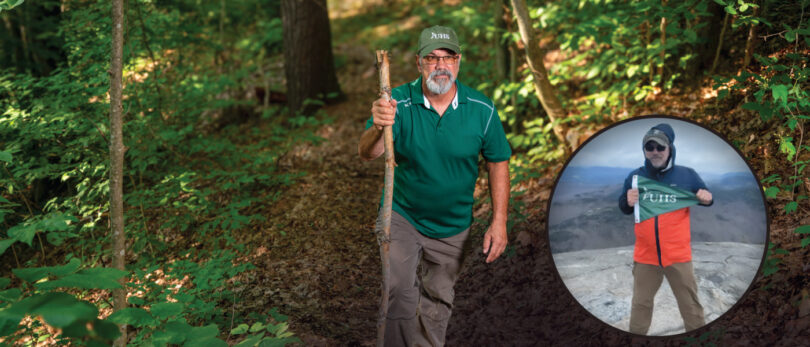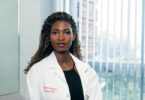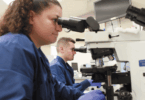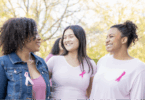UHS patient summits mountain after two hip replacements and cancer treatment
On April 19, 2024, Binghamton native Harold Jones IV climbed Cascade Mountain in the Adirondacks, like thousands of others do annually. This was truly a remarkable feat—because Mr. Jones might not have been alive to make the journey at all.
Five years ago, Mr. Jones was a lifelong UHS patient with one hip replacement under his belt when he noticed a lump in his neck. UHS’ ear, nose and throat (ENT) specialists diagnosed it as tonsil cancer. “The clinical staff recognized my anxiety and were so caring and competent, providing honest, direct answers to my questions,” Mr. Jones says.
Anxiety and other strong emotions—like sadness, anger or depression—can affect many people facing a cancer diagnosis. And different people experience different levels of distress. Some can change their behavior or find healthy ways to cope. Others may have a harder time coming to terms with the disease. A cancer program like the one at UHS offers support at all stages of a patient’s cancer journey.
Empowering comprehensive care
An aspect of support patients receive is to have as much control over their care as possible. For example, when Mr. Jones sought a second opinion at Roswell Park Comprehensive Cancer Center, UHS ENT provided encouragement, medical records and treatment plan recommendations for those doctors to review. “It was wonderful to hear from the Roswell Park oncologists that they agreed with the UHS plan and that I would receive the same care at home as I would with them,” he commented. Confident in his choice, he scheduled a radical tonsillectomy at UHS Wilson Medical Center.
On the day of surgery, Mr. Jones realized the additional value of getting care in one’s hometown: Extra TLC from people you know. “I was alone and saw a nurse who was a classmate of my son’s,” he said. “Colleen Smith saw how scared and nervous I was and stayed with me while my sedation was administered. This is the high standard of care anyone experiencing a serious medical event hopes for, and I received that kind of comprehensive, world-class healthcare right here in Greater Binghamton.”
Radical tonsillectomy is more invasive than the standard version of having one’s tonsils removed. The surgeon described it as “taking an ice cream scoop to the tonsils,” Mr. Jones noted. Following the surgery, Mr. Jones took the recommendation from his radiation oncologist and underwent 36 radiation treatments that targeted both sides of his throat, even though the cancer was present on only one side. The radiation was challenging for Mr. Jones. By the end of the treatment, he had lost 59 pounds and was receiving intravenous fluids.
Reaching new heights
Cancer-free and in remission for more than three years, Mr. Jones said his most recent medical adventure was the replacement of his other hip. Based on his positive experience with his first hip replacement, he chose the same orthopedic surgeon, Lawrence Wiesner, DO, and the UHS Rehabilitation team to take care of him again. In the years between Mr. Jones’ first and second hip replacements, Dr. Wiesner traveled to Paris to learn a new technique from which his patients can benefit. “I love the smaller incision scar and that local physicians are traveling the world to learn techniques and bring them home,” Mr. Jones commented.
The physical therapists at the UHS Orthopedic Center—right across the road from Mr. Jones’ office—tailored his three-days-a-week therapy sessions to his recovery goal: Summiting Cascade Mountain 90 days after surgery. “They thought it through with me. They had me climbing up and down 24-inch steps while holding weights, exactly the interval I needed to get up and down Cascade,” he noted. And the program worked. He summited the mountain on Day 106 after his hip surgery. He posed for a photo holding a UHS flag as a thank you to the many medical professionals who helped him to recover from cancer and hip replacements and to be strong enough to make the trip.
Cherishing moments
Today Mr. Jones works as a supervisor, focused on sharing his knowledge of the local electrical grid with a new generation of line-workers. Outside work, he looks forward to hosting his granddaughter for their weekly play dates. As he described it: “She goes through and knocks everything over, and I spend the next day picking it all up. It’s awesome. I’m so glad to be here for it.”
Learn More
For more information about services provided at UHS, visit nyuhs.org/care-treatment.







